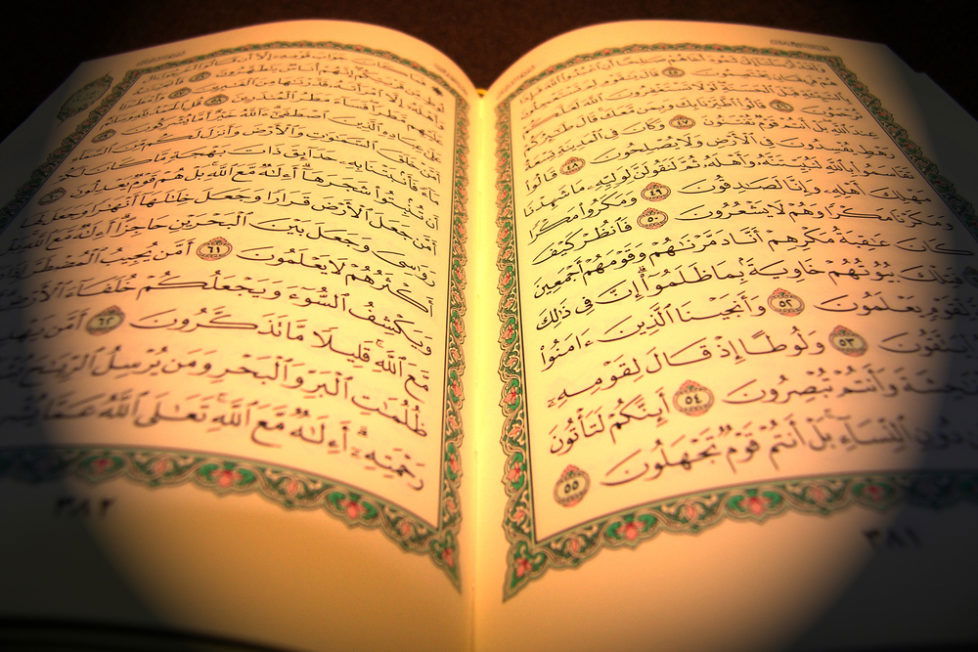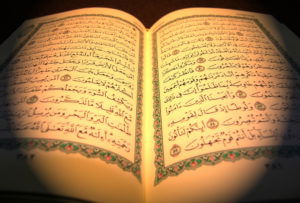The bonding between Muhammad the Prophet of Islam and his uncle Hamza ibn e Abdul Muttalib



The bonding between Muhammad the Prophet of Islam and his uncle Hamza ibn e Abdul Muttalib was very strong, because they were close to each other in age. Hamza was the youngest child of Abdul Muttalib, the paternal grandfather of Prophet Muhammad. Hamza was skilled in wrestling, archery and fighting. He was fond of hunting lions, and he is described as “the strongest man of the Quraysh, and the most unyielding”.Hamza did not take much notice of Islam for the first few years. But his bonding with his nephew was such that when he heard his cousin Amr Bin Hasham had insulted Muhammad, he first went to beat him up, and then declared allegiance to Islam. This happened in late 616 AD. Hamza had gone on a hunting trip to the desert and upon his return to Makka, he heard that Amr ibn Hishām (referred in Islamic scriptures as “Abu Jahl”) had “attacked the Prophet and abused and insulted him.[1] “speaking spitefully of his religion and trying to bring him into disrepute”[2]. Hamza got highly enraged and went to find Abu Hisham. He entered the Kaaba, where Abu Hishām was sitting with the elders, stood over him and struck him a violent blow. He said, “Will you insult him, when I am of his religion and say what he says? Hit me back if you can![3]
After this, Hamza declared Islam. “Hamza’s Islam was complete, and he followed the Apostle’s commands. When he became a Muslim, the Quraysh recognised that the Apostle had become strong, and had found a protector in Hamza, and so they abandoned some of their ways of harassing him”
Now we may speculate on the reasons behind this special bond between Hamza and Prophet Muhammad. Let us look into some background to this. The Prophet of Islam was born in 560 AD in Makka. His father Abdullah was the youngest son of Abdul Muttalib of the Hashmi clan. Al-Waqidi states that his parents met when Abdul Muttalib went with his son Abdullah to the house of Wahb ibn ‘Abd Manaf to seek the hand of Wahb’s daughter Aminah. While they were there, Abdul-Muttalib noticed Wahb’s niece, Hala bint Uhayb, and he asked for her hand as well. Wahb agreed, and Muhammad’s father Abdullah and his grandfather Abdul-Muttalib were both married on the same day, in a double-marriage ceremony. [4]The same incident is related in Al Tabari Volume 6 as well as in Tabaqat Ibn Saad Volume 1 & 2. According to the latter:
“Aminah Bint Wahb Ibn ‘ Abd Manaf Ibn Zuhrah Ibn Kilab was under the guardianship of her paternal uncle Wuhayb Ibn v Abd Manaf Ibn Zuhrah. v Abd al-Muttalib Ibn Hashim Ibn v Abd Manaf Ibn Qusayyi approached him along with his son v Abd Allah Ibn v Abd al-Muttalib, the Prophet’s father, and proposed for ‘Aminah Bint Wahb. He (Wuhayb) married her with Abd Allah Ibn Abd al-Muttalib. In this very meeting Abd al-Muttalib Ibn Hashim made a proposal for his own daughter, Halah Bint Wuhayb, for himself, and consequently he (Wuhayb) married (Halah to Abd al-Muttalib Ibn Hashim)”[5]
After the marriages, some references suggest Abdullah stayed with Aamina for three days. Some on the other hand mention they were together for three months. Following the marriage, Abdul Muttalib sent Abdullah to Syria for some trade. When he didn’t return, Abul Muttalib sent his other son Harrith to look for him. Harrith found out that Abdullah had died there.
Abdul Muttalib and Halah had a son, who was none other than the youngest uncle of Prophet Muhammed, named Hamza ibn Abd al-Muttalib, who was born in 568 AD. Prophet Muhammad was born in 560 AD. There are a number of historical references to the fact that both Hamza and Muhammad were nursed by the same woman nurse initially, who was called Thuwaybah. According to Tamyiz e Al Sahaba published in 1995:
“”Zubayr narrated that Hamza was four years older than the Prophet.[4] But this does not seem correct, because reliable hadith state that Thuwayba nursed both Hamza and the Prophet”[6]
Now the argument arises, Prophet Muhammad was born after the death of Abdullah, who got married to Aaminah at the same time as his father Abdul Muttalib got married to Halah. The latter had a son called Hamza, who was either two or four years older than Prophet Muhammad. Abdul Muttalib’s son Abdullah did not stay with Aaminah for more than 3 months, after which he died. This was either 2 years or 4 years prior to the birth of Prophet Muhammad.
According to modern science, the gestation period for any pregnant human beings is on average 9 months. In some cases, it can be more than 9 months. But Quran talks about pregnancy, gestation period and the gender of the child all to be a secret known by only Allah.
Allah knows what every female bears (i.e. conceives) and what the wombs subsiding (i.e., what wombs fall short of or exceed) and increase, (i.e., what wombs fall short of or exceed) and everything in His Providence has (its) (perfect) determination. 13:9 Al Quran
According to a narration, a man came to the Prophet and asked him Ya Rasul Allah, please pray for me. My wife has been pregnant for four years and is not delivering the child. But before the man could even finish the sentence, his wife delivered the baby. The boy was able to walk, he had hair and a full set of teeth. The story was narrated to many and is talked about in awe and wonder. The story and the background goes to proof that indeed Allah’s miracles can make a woman stay pregnant for as long as Allah requires, well beyond the average 9 month period. Or does it.
[1]Kitaab al Tabaqat Al Kabir, Volume 3, Saad M. The Companions of Badr, Bewley A
[2]Sirat Rasul Allah, Ibn e Ishaq M. Life of Muhammad, Guillame A
[3]Sirat Rasul Allah, Ibn e Ishaq M. Life of Muhammad, Guillame A
[4]P 8, The History of Al Tabari, Volume 6, Muhammad at Makka, Translated by Montgomery Watt. W and McDonald W
[5]Tabaqat Ibn Saad Volume 1 part 1.20.1 , part 1.20.2 , part 1,19 .1
[6]p 105, Vol 2, Tamyiz e Al Sahaba
DISCLAIMER: The author is solely responsible for the views expressed in this article. The author carries the responsibility for citing and/or licensing of images utilized within the text.
